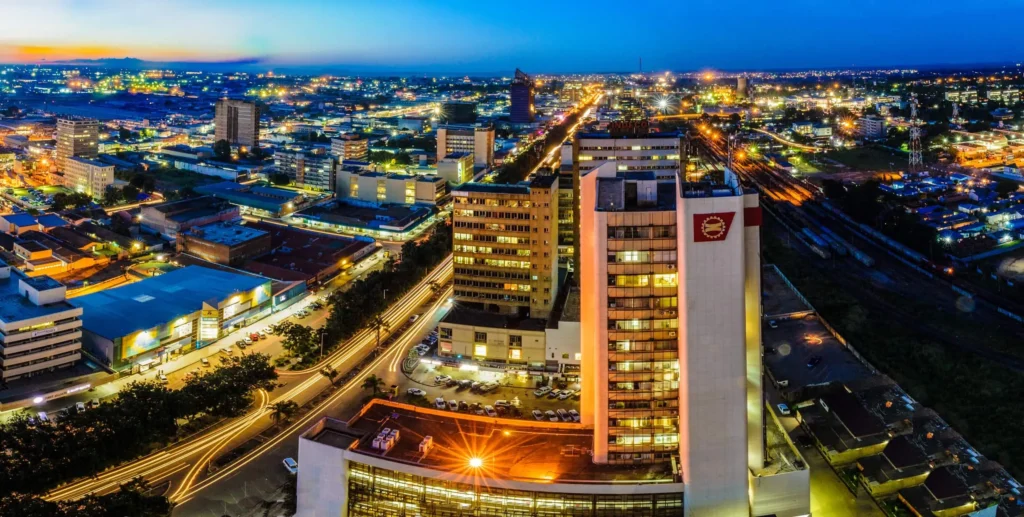Zambia Sustains Fiscal Credibility Through Timely Budget Execution
The Government of the Republic of Zambia has reaffirmed its commitment to fiscal credibility, transparency, and consistent delivery of national priorities through the timely release of public funds.
According to a statement issued by the Ministry of Finance and National Planning, the Treasury released K21.4 billion in September 2025 to support key national development programmes, debt servicing, and essential public services.
Finance and National Planning Minister Dr Situmbeko Musokotwane said the monthly budget releases demonstrate that the government, under the leadership of President Hakainde Hichilema, is implementing its reform agenda with discipline, accountability, and purpose.
“Each month’s budget release is not merely a routine transaction; it is a heartbeat of national progress,” said Dr Musokotwane. “The K21.4 billion released in September 2025 is evidence of a living, working budget — one that touches every classroom, clinic, field, and household.”
Out of the K21.4 billion released:
- K5.2 billion was allocated to the Public Service Wage Bill, ensuring timely payment of salaries for teachers, health workers, and diplomats, thereby maintaining morale and uninterrupted public service delivery.
- K10.2 billion went towards debt servicing and arrears, comprising K3.1 billion for domestic debt, K371.3 million for external debt service, and K6.7 billion for dismantling arrears.
- K3.4 billion was channelled into transfers, subsidies, and social benefits, including:
- K1.2 billion to Grant-Aided Institutions such as hospitals and universities for operational support.
- K900 million to the Food Reserve Agency (FRA) for maize purchases.
- K656.8 million for the Social Cash Transfer Programme, supporting vulnerable households.
- K241.9 million in grants to Local Authorities.
- K200 million for the Constituency Development Fund (CDF), financing infrastructure, bursaries, and empowerment programmes for youth, women, and cooperatives.
- K1.5 billion was disbursed for programme implementation and general operations across Ministries, Provinces, and Spending Agencies, including K49 million for voter registration and K73.8 million for geological surveys aimed at enhancing mineral mapping and attracting investment in the mining sector.
- K1 billion was invested in capital expenditure, reflecting the government’s continued focus on infrastructure-led growth. Of this amount:
- K590.4 million supported road infrastructure.
- K284.1 million was spent on water, sanitation, and health infrastructure.
- K161 million was released for the development and upgrading of provincial airports to enhance connectivity and promote regional trade.
The Ministry stated that the releases demonstrate the government’s fiscal discipline and commitment to rebuilding economic confidence. The dismantling of arrears, especially in fuel-related payments amounting to K6.1 billion, is restoring liquidity and stimulating private sector activity.
Dr Musokotwane emphasised that consistent and transparent releases are not only improving public service delivery but are also helping to rebuild market trust and fiscal space.
“Every kwacha released is a promise fulfilled: salaries paid, roads built, debts cleared, and families supported through social protection and community grants,” he said. “This consistency builds trust that Zambia’s finances are being managed prudently and transparently.”
The Ministry’s statement included a collective call to action for citizens, local authorities, the private sector, civil society, and development partners to work together in sustaining Zambia’s economic progress.
- Citizens are urged to stay informed, apply for CDF grants and bursaries, form cooperatives, and demand transparency and accountability from local authorities.
- Local Authorities and Community Development Committees are called upon to accelerate CDF project implementation, prioritise completion of infrastructure works, and report publicly on expenditure.
- The Private Sector is encouraged to reinvest and expand operations in response to improved liquidity, and to leverage opportunities in logistics, mining, agriculture, and tourism arising from capital investments in roads and airports.
- Civil Society, Faith-Based Organisations, and the Media are urged to educate citizens, monitor project implementation, and use community radio and social media to promote transparency and civic participation.
- Development Partners and Investors are encouraged to sustain engagement and confidence, aligning support to national priorities and strengthening local ownership of development programmes.
In his final reflection, Dr Musokotwane said Zambia’s journey to economic resilience is anchored in shared discipline, trust, and collective effort.
“We will continue dismantling arrears, supporting social protection, and funding key sectors to keep the economy stable and inclusive,” he said. “When citizens demand accountability, when local authorities deliver efficiently, when businesses invest responsibly, and when partners support reforms — Zambia wins.”
He concluded that the government remains determined to build a better, stronger, and more resilient Zambia, “one release, one project, one community at a time.”



